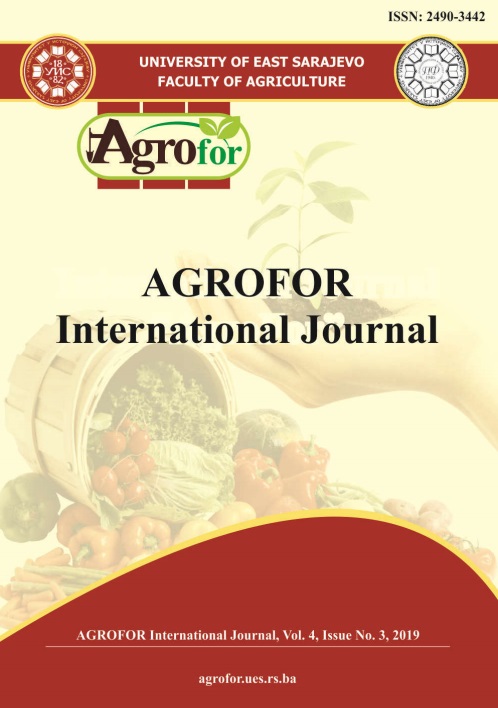MODEL STUDY TO INVESTIGATE THE TOXIC INTERACTION BETWEEN GLYPHOSATE AND COPPER SULPHATE ON CHICKEN EMBRYOS
DOI:
https://doi.org/10.7251/AGRENG1903076SAbstract
The toxic effects of the Taifun Forte herbicide (360 g/l glyphosate isopropylamine salt) applied alone or in combination with copper sulphate were studied on chicken embryos in the early phase of embryonic development. The test materials were
injected in 0.1 ml volume into the air chamber of eggs on the first day of incubation. Subsequently, on the third day of incubation permanent preparations were made from the embryo in order to study the early developmental stage. Embryos fixed on slides and stained with osmium tetroxide solution were studied under light microscope. The embryonic mortality and the developmental anomalies was analysed statistically by Fisher test. According to the result of the statistical evaluation, the embryonic mortality was not influenced by the single treatment of copper sulphate. However, Taifun Forte and its combination with heavy metal significantly increased the early embryonic mortality. Developmental abnormalities were sporadically observed due to the single administration of copper sulphate. The incidence of it was increased due to the treatment with herbicide alone and in combination with copper sulphate. Based on the results, additive toxic interaction may occur between the copper sulphate and glyphosate that can highly reduce the viability of the embryos or can lead to extinction of wild birds in serious cases.

